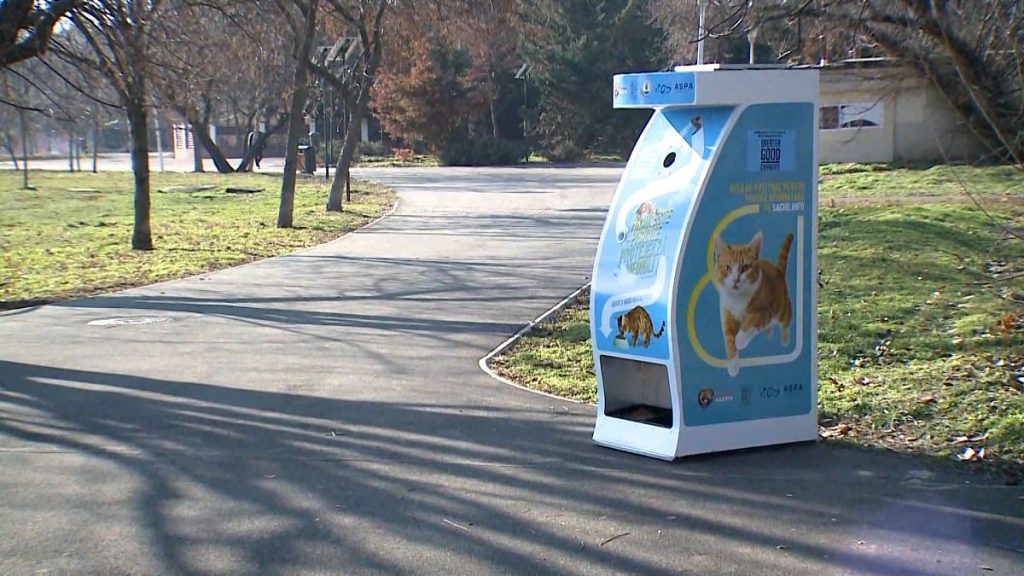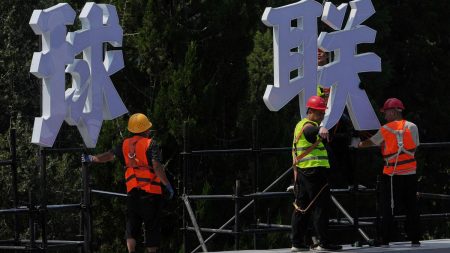Bucharest, the bustling capital of Romania, has embarked on a compassionate and innovative mission to protect its vulnerable stray cat population from the harsh realities of extreme weather. Recognizing that homeless cats are particularly susceptible to frostbite and hypothermia during frigid winters and dehydration during scorching summers, the city has implemented a unique solution: solar-powered vending machines that dispense food and water in exchange for recycled plastic bottles and aluminum cans. This ingenious initiative not only provides vital sustenance for the city’s feline residents but also encourages environmental responsibility within the community.
The project, spearheaded by the Sache Vet Association in partnership with the Authority for Animal Supervision and Protection and funded by Bucharest City Hall, represents a collaborative effort to address the pressing issue of animal welfare. The vending machines offer a simple and accessible way for residents to contribute to the well-being of stray cats without any financial burden. By simply depositing recyclable materials, individuals can directly provide food and water, ensuring that these vulnerable creatures have access to essential resources, especially during periods of extreme weather. This system empowers the community to play an active role in animal care, fostering a sense of collective responsibility and compassion.
The initiative has received a significant boost from the international NGO Greater Good Charities, which has generously donated a year’s supply of cat food, ensuring the sustainability of the program. This vital contribution alleviates the financial burden on the city and allows resources to be allocated to other aspects of animal welfare, such as veterinary care and sterilization programs. The collaboration between local authorities, non-profit organizations, and international charities exemplifies the power of collective action in addressing complex societal challenges.
The strategically placed vending machines, currently located in three of Bucharest’s most frequented parks—Tineretului, Circului, and Floreasca—are not only providing crucial sustenance but also serving as platforms for raising awareness about animal adoption. Alongside the food and water dispensers, informative displays showcase adoptable dogs, encouraging park visitors to consider opening their homes to a loving companion. This dual-purpose approach addresses both the immediate needs of stray cats and the broader issue of animal homelessness, promoting responsible pet ownership and highlighting the importance of finding forever homes for abandoned animals.
The positive impact of the solar-powered vending machines extends beyond the immediate benefits for stray cats. The initiative fosters a sense of community engagement and encourages environmentally conscious behavior by incentivizing recycling. By linking the act of recycling with animal welfare, the program promotes a holistic approach to urban sustainability, demonstrating that seemingly disparate issues can be addressed through creative and interconnected solutions. This initiative serves as a model for other cities seeking to improve both animal welfare and environmental sustainability.
Looking ahead, the program’s organizers anticipate expanding the network of vending machines to other parks and public spaces throughout Bucharest, further increasing access to food and water for stray cats and broadening the reach of their adoption campaign. The initial success of the project has generated significant public interest and support, creating momentum for future expansion and solidifying Bucharest’s commitment to creating a more compassionate and sustainable urban environment for both its human and animal inhabitants. This innovative approach to animal welfare serves as an inspiring example of how cities can leverage technology and community engagement to address complex social and environmental challenges.














